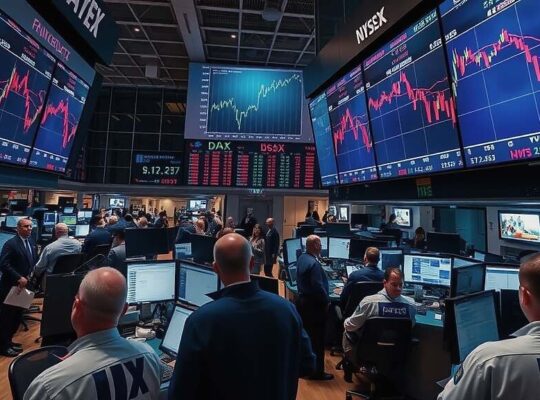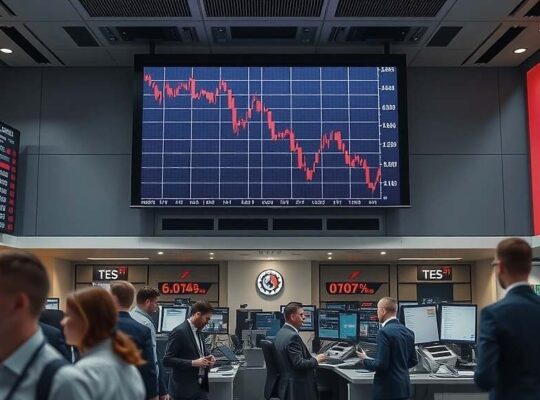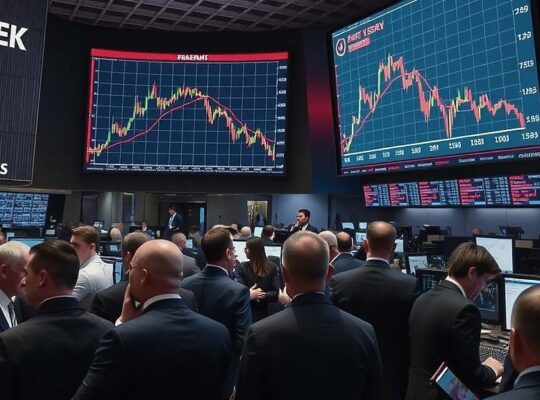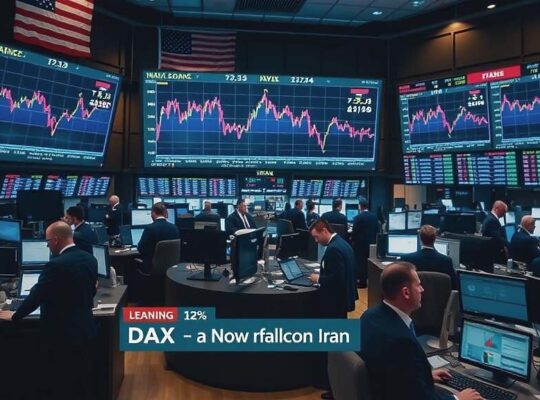European markets exhibited a cautiously optimistic performance Wednesday, with the German DAX index registering a minor gain of 0.1% to close at 23,163 points. The modest uptick followed a session characterized by fluctuating investor sentiment, reflecting broader anxieties surrounding the health of the US technology sector and the impact of significant investment strategies.
The market’s trajectory was described by Christine Romar, Head of Europe at CMC Markets, as complicated, driven by “investors torn between the struggles of US Big Tech and massive investments, like those from Warren Buffett’s Berkshire Hathaway into Alphabet”. While Alphabet’s soaring stock price provided an upward push for the DAX, analysts cautioned against interpreting the rally as a sustained trend, referencing recent failed attempts at stabilization in New York trading. This highlights a persistent fragility within global markets, dependent on unpredictable investment flows and vulnerable to shifts in macroeconomic concerns.
Notably, the day’s gains were largely driven by BASF, Daimler Truck and Heidelberg Materials, while Rheinmetall lagged behind. This divergence underscores the uneven nature of the economic recovery, with varying performance across different sectors, potentially exacerbated by geopolitical uncertainties and shifting supply chain dynamics.
Further dampening potential for broader market exuberance was a significant drop in European gas prices, falling to €31 per megawatt-hour, representing a two percent decrease. While consumers could see electricity prices potentially drop to approximately 8-9 cents per kilowatt-hour should this level prove sustainable, the sustained low prices also raise concerns about potential supply issues or a lack of investment in essential energy infrastructure.
Crude oil prices experienced a noteworthy decline as well, with Brent crude dropping to $63.52 per barrel, a 2.1 percent decrease. This volatility in energy markets continues to create challenges for policymakers and businesses alike, contributing to inflation concerns and complicating efforts to stabilize the global economy.
The euro also weakened against the dollar, trading at $1.1537, a reflection of ongoing economic headwinds and potentially signaling a widening divergence in monetary policy between Europe and the United States. The combination of factors reveals a market exhibiting a tenuous balance between potential recovery and persistent vulnerabilities, demanding careful monitoring and adaptive policy responses.












